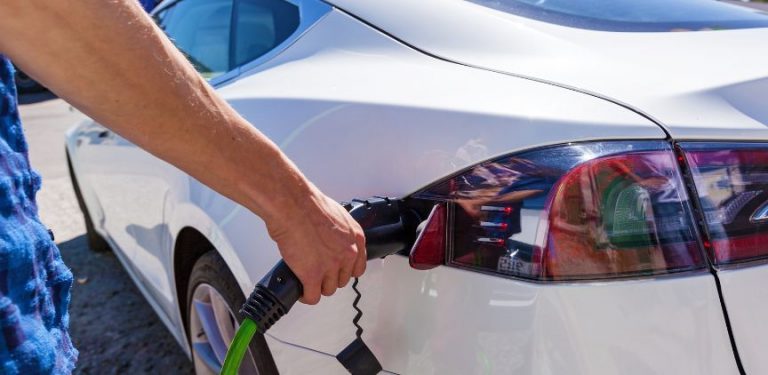Ranking the Winners and Losers
A car isn’t just transportation: it’s an investment, and one that starts losing value the moment you drive off the lot. But not all vehicles depreciate equally. Some brands hold their worth remarkably well, while others lose thousands more over just a few years. Resale value matters whether you plan to trade in, sell privately or simply get the most for your money in the long run. Which car brands hold their value best? Here’s a closer look at how six stack up, ranked from best to worst when it comes to holding their value.
1. Honda: The Gold Standard of Resale
Year after year, Honda dominates resale value rankings, and it’s easy to see why. The company’s cars and SUVs have earned a bulletproof reputation for reliability and efficiency. Models like the Civic, Accord and CR-V continue to command high prices in the used-car market, often retaining more than half of their original value after three years. Buyers know what they’re getting with a Honda: low maintenance costs, good fuel economy and engineering that simply lasts.
Even as newer brands chase high-tech features, Honda focuses on dependability, and that strategy pays off in resale. Whether you’re buying a compact sedan or a family SUV, it’s hard to go wrong with a Honda if long-term value matters.
2. Ford: Strong Resale Driven by Trucks and SUVs
Among American automakers, Ford sits at the top for resale value, largely thanks to the enduring success of its trucks. The Ford F-150, a staple of American roads for decades, remains one of the best-selling and best-reselling vehicles in the country. These trucks hold their value because they’re built tough, perform reliably, and appeal to a wide range of buyers—from contractors to commuters.
Beyond trucks, Ford’s newer SUVs like the Bronco and the Escape have also shown solid resale performance. The Bronco, in particular, benefits from its nostalgic styling and off-road capability, making it a hot commodity in the used market. While Ford’s smaller sedans don’t fare as well, the company’s emphasis on trucks, hybrids and performance SUVs helps keep its resale value competitive.
Related Search Topics (Ads)
3. Kia: A Rising Star in the Resale Market
Not long ago, Kia was known for affordability, not durability. But the brand has transformed its image in the past decade. Modern Kias—especially the Telluride, Sorento and Sportage—combine sharp design, comfort and reliability, creating a strong following among American families. The Telluride, in particular, has been a breakout success, often selling for close to its original sticker price even after a few years on the road.
Kia’s generous warranties and improving long-term dependability have built trust with buyers, which translates directly to stronger resale values. While it still trails Honda and Ford in overall perception, Kia’s rise has been one of the most impressive in the auto industry. A decade ago, it was near the bottom of the resale rankings. Today, it’s a serious contender.
4. General Motors: Great Trucks, So-So Cars
General Motors presents a tale of two markets. On one hand, its trucks and large SUVs—like the Chevrolet Silverado, GMC Sierra and Chevy Tahoe—hold value exceptionally well. These vehicles are known for capability and toughness, making them highly desirable on the used market. On the other hand, GM’s sedans and compact cars, such as the Malibu or the now-discontinued Spark, tend to lose value quickly.
A major factor in GM’s uneven performance is volume. Many of its lower-end models are sold to rental fleets or company car programs, which flood the used market and depress prices. Still, for buyers of GM’s big trucks and SUVs, resale remains strong. It’s a brand that rewards those who stick to its best offerings.
5. Audi: Luxury Appeal Meets Faster Depreciation
Audi sits in the middle of the luxury pack for resale value. Its sleek designs and sophisticated interiors keep demand steady, but maintenance costs and high sticker prices accelerate depreciation. Vehicles like the Audi Q5 and A4 tend to hold their value better than sportier or more expensive models, but across the lineup, Audi cars usually lose more value than mass-market brands.
That said, Audi benefits from its reputation for technology and craftsmanship, which helps soften the blow compared with other luxury automakers. Certified pre-owned programs also add confidence for buyers, making slightly used Audis more appealing. Still, luxury vehicles in general simply can’t match the resale stability of reliable, mainstream brands.
6. BMW: Stylish, Fast, and Quick to Depreciate
At the bottom of this list sits BMW, a brand that delivers performance and prestige, but not strong resale value. The Bavarian automaker’s sedans, like the 3-Series and 5-Series, tend to lose value quickly once their warranties expire, mainly because repairs and maintenance can be costly. While BMW’s SUVs, such as the X3 and X5, perform a bit better, the overall trend remains one of rapid depreciation.
Leasing plays a big role here: many BMWs are leased for a few years and then flood the used market, pushing resale prices down. For drivers who prioritize performance and comfort, BMW remains a top choice, but for those who think in dollars and cents, it’s one of the least rewarding brands when it’s time to sell.
Know Before You Buy
Resale value reflects a car’s lasting appeal and reliability in the real world, and the differences among brands can be striking. Honda leads the pack with unmatched consistency, followed by Ford’s powerhouse lineup of trucks and SUVs. Kia’s remarkable climb proves that perceptions can change, while GM, Audi and BMW remind buyers that reputation alone doesn’t guarantee long-term value.
When it comes time to buy, think beyond the monthly payment. The best deal isn’t always the cheapest car, it’s the one that’s still worth something years down the road.
Keep reading to learn how to get a car loan with bad credit.

